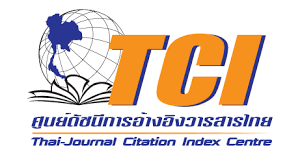The Evolution of China’s Security Policy: From Deng to Xi
- Nutthathirataa Withitwinyuchon, The Institute of Diplomacy and International Studies, Rangsit University, Pathum Thani, 12000 Thailand, E-mail: nutthathirataa.w@rsu.ac.th
Abstract
The increasingly aggressive security policy of China in the past recent years has demonstrated significant departure from Deng-prescribed foreign policy practiced since the 1980s and therefore raised the eyebrows of many observers. As Chinese security policy inevitably has meaningful implication on not only regional but also global peace and stability, this visible deviation definitely deserves a closer examination. In order to explain China’s changing security policy posture, this paper has traced changes in China’s national identity from Deng to Xi era and analyzed how they defined the regime’s interests which consequently shaped security policy. Based on constructivists’ assumption, this paper posits that the way the world see China and the new Chinese perception of themselves as a great power has thus far contributed to the vigorous move in China’s security concerns, especially in the East and South China Sea.
Keywords: China, Identity, Security Policy, Deng Xiaoping, Deng Xiaoping, Constructivism
DOI: 10.14456/rjsh.2020.3
References
Atanassova-Cornelis, E. (2012). Chinese Nation Building and Foreign Policy: Japan and the U.S. as Significant “Others” in National Identity Construction. East Asia, 29, 95-108.
Beijing defends oil, gas activity in East China Sea. (2017). The straits times. Retrieved from https://www.straitstimes.com/asia/beijing-defends-oil-gas-activity-in-east-china-sea
Beijing rejects tribunal’s ruling in South China Sea case. (2016). The Guardian. Retrieved from https://www.theguardian.com/world/2016/jul/12/philippines-wins-south-china-sea-case-against-china
Blanchard, B., & Lee, Y. (2016). China celebrates Communist Party’s 95th birthday, Xi warns on graft, security. Reuters. Retrieved from https://www.reuters.com/article/us-china-party-idUSKCN0ZH3Q2
Bull, H. (2012). The Anarchical Society: A Study of Order in World Politics (4th ed). New York, US: Palgrave Macmillan.
Burchill, S. (2005). The National Interest in International Relations Theory. New York, US: Palgrave Macmillan.
Bush, R. C. (2010). The Perils of Proximity: China-Japan Security Relations. Washington DC, U.S.: Brookings Institution Press.
Callahan, W. A. (2004). National Insecurities: Humiliation, Salvation, and Chinese Nationalism.
Alternatives: Global, Local, Political, 29(2), 199-218.
Callahan, W. A. (2015). History, Tradition and the China Dream: socialist modernization in the World of Great Harmony. Journal of Contemporary China, 24(96), 983-1001.
China establishes ‘air-defence zone’ over East China Sea. (2013). BBC. Retrieved from https://www.bbc.com/news/world-asia-25062525
China president speaks out on security ties in Asia. (2014). BBC. Retrieved from https://www.bbc.com/news/world-asia-china-27498266
Copp, T. (2016). Japan surges new weapons, military roles to meet China’s rise. AirforceTimes. Retrieved from https://www.airforcetimes.com/news/2019/01/15/japan-surges-new-weapons-military-roles-to-meet-chinas-rise/
Deng’s heirs ignore his advice. (2010). The Economist. Retrieved from https://www.economist.com/asia/2010/09/23/dengs-heirs-ignore-his-advice
Dolven, B., Elsea, K. J., Lawrence, V. S., O’Rourke, R., & Rinehart, I. E. (2015). Chinese Land Reclamation in the South China Sea: Implications and Policy Options. Retrieved from https://fas.org/sgp/crs/row/R44072.pdf
Donnelly, J. (2000). Realism and International Relations. Cambridge, UK: Cambridge University Press.
Foot, R. (Ed.). (2013). China Across the Divide: The Domestic and Global in Politics and Society. New York, US: Oxford University Press.
George, A., & Keohane, R. (1980). The concept of national interests: Uses and limitations. Boulder, U.S.: Westview Press.
Goodman, D. S. G. (1994). Deng Xiaoping and the Chinese Revolution: A Political Biography. London, UK: Routledge.
Guibernau, M. (2001). Globalization and the Nation-State. In M. Guibernau, & J. Hutchinson (Eds.),
Understanding Nationalism (pp. 242-268). Oxford, U.K.: Blackwell
Guibernau, M. (2004). Nation formation and national identity. Belgisch Tijdschrift voor Nieuwste
Geschiedenis, 34(4), 657-682.
Hagström, L., & Hanssen, U. (2016). War is peace: The rearticulation of ‘peace’in Japan’s China discourse. Review of International Studies, 42(2), 266-286.
Hanssen, U. (2020). Temporal Identities and Security Policy in Postwar Japan. New York, US: Routledge.
Harlan, C. (2013). China creates new air defense zone in East China Sea amidst dispute with Japan. Washington Post. Retrieved January 26, 2019, from https://www.washingtonpost.com/world/china-creates-new-air-defense-zone-in-east-china-sea-amid-dispute-with-japan/2013/11/23/c415f1a8-5416-11e3-9ee6-2580086d8254_story.html
He, Y. (2017). The Impact of Chinese National Identity on Sino-Japanese Relations. Retrieved from http://www.keia.org/sites/default/files/publications/jointus-korea_17_digital_p2ch1.pdf
Ho, W. C. (2018). Culture, Music Education, and the Chinese Dream in Mainland China. Singapore: Springer.
Hughes, R. C. (2006). Chinese Nationalism in the Global Era. London, UK: Routledge.
Keith, R. C. (2018). Deng Xiaoping and China’s Foreign Policy. Abingdon, Oxon: Routledge.
Kim, S. S. (2004). Northeast Asia in the local-regional-global nexus: multiple challenges and contending explanations. The international relations of northeast Asia, 41, 3-64.
Kurlantzick, J. (2015). A China-Vietnam Military Clash. Retrieved January 26, 2019, from https://www.cfr.org/report/china-vietnam-military-clash
Lanteigne, M. (2013). Chinese Foreign Policy: An Introduction. Abingdon, Oxon: Routledge.
Lee, Y., & Hamacher, F. (2019). F. Taiwan warns of possible attack if China’s slowdown ‘becomes serious’. Reuters. Retrieved from https://www.reuters.com/article/us-taiwan-diplomacy-china/taiwan-warns-of-possible-attack-if-chinas-slowdown-becomes-serious-idUSKBN1XH0H5
Li, R. (2009). A Rising China and Security in East Asia: Identity Construction and Security Discourse. London, UK: Routledge.
Li, Y. (2014). Constructing peace in the Taiwan Strait: a constructivist analysis of the changing dynamics of identities and nationalism. In S. Zhao (Ed.), Construction of Chinese Nationalism in the Early 21st Century: Domestic Sources and International Implications (pp. 224-247). London, UK: Routledge.
McCaughrin, D. C. (2017). What Does China’s ‘New Asian Security Concept” Mean for the U.S.?. Retrieved January 26, 2019, from https://thediplomat.com/2017/01/what-does-chinas-new-asian-security-concept-mean-for-the-us/
Mearsheimer, J. (2001). The Tragedy of Great Power Politics. New York, US: Norton.
Panda, A. (2019). A US Navy warships sailed near China-held features in the Paracel Islands. The Diplomat. Retrieved January 18, 2020, from https://thediplomat.com/2019/09/south-china-sea-us-navy-warship-conducts-freedom-of-navigation-operation-near-paracel-islands/
Profile: China’s President Xi Jinping. (2018). BBC. Retrieved from https://www.bbc.com/news/world-asia-pacific-11551399
Ross, R. S. (2013). The Domestic Sources of China’s “Assertive Diplomacy” 2009–10 Nationalism and Chinese Foreign Policy. In R. Foot (Ed.), China Across the Divide: The Domestic and Global in Politics and Society (pp. 72-93). New York, US: Oxford University Press.
Rozman, G. (2011). Chinese National Identity and Its Implications for International Relations in East Asia. Asia-Pacific Review, 18(1), 84-97.
Shirk, S. L. (2007) China: Fragile Superpower. New York, US: Oxford University Press.
Sørensen, C. T. N. (2015) The Significance of Xi Jinping’s ‘Chinese Dream’ for China Foreign Policy: From ‘Tao Guang Yang Hui’ to ‘Fen Fa You Wei’. Journal of China and International Relations, 3(1), 53-73.
Takamine, T. (2006). Japan’s Development Aid to China: The long-running foreign policy of engagement. London, UK: Routledge.
The State Council, The People’s Republic of China. (2017). China’s Policies on Asia-Pacific Security Cooperation. Retrieved from http://english.gov.cn/archive/white_paper/2017/01/11/content_281475539078636.htm
U.S. to blame if any South China Sea clash: Chinese researcher. (2019). Reuters. Retrieved January 26, 2019, from https://www.reuters.com/article/us-china-usa-military/us-to-blame-if-any-south-china-sea-clash-chinese-researcher-idUSKCN1P31CK
Waltz, K. (1979). Theory of International Politics. Boston, US: Addison-Wesley.
Wan, M. (2006). Sino-Japanese Relations: Interaction, Logic, and Transformation. Washington, DC, U.S.: Woodrow Wilson Center Press.
Wang, Z. (2012). Never Forget National Humiliation: Historical Memory in Chinese Politics and Foreign Relations. New York, US: Columbia University Press.
Wendt, A. (1999). Social Theory of International Politics. Cambridge: Cambridge University Press.
Whiting, A. (1989). China Eyes Japan. California, U.S.: University of California Press.
Wong, J. (2017). Xi sets out economic road map for China Dream. Straits Times. Retrieved from http://www.straitstimes.com/opinion/xi-sets-out-economic-road-map-for-china-dream
Xiangqing, M. (2013). Chinese Dream Includes Strong PLA. China Daily. Retrieved from http://www.chinadaily.com.cn/opinion/2013-12/24/content_17194128.htm
Xuetong, Y. (2014). Keeping a Low Profile to Striving for Achievement. The Chinese Journal of International Politics, 7(2), 153-184.
Yahuda, M. (2013). Sino-Japanese Relations after the Cold War: Two Tigers Sharing a Mountain.
New York, US: Taylor and Francis.
Zhao, S. (2004). A Nation-State by Construction: Dynamics of Modern Chinese Nationalism. California, U.S.: Stanford University Press.

Indexed in


Search